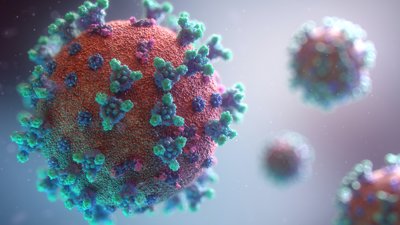University of Brighton (UoB) research has reduced human health risk from diseases including cholera, Ebola, typhoid and childhood diarrhoea in regions of Africa, Asia and South America through the identification of pathways of human faecal contamination and the development of low-cost lime-based treatments of waste.
Issue
Infectious diseases caused by pathogens associated with poor water, sanitation and hygiene, such as Vibrio cholerae (cholera) and Salmonella typhi (typhoid), are responsible for 95,000 and 178,000 global deaths/year, respectively. Understanding how these and other agents of disease such as Ebolavirus are spread in low-income settings is critical for the prevention of onward transmission.
Approach
UoB researchers developed a low-cost hydrated lime-based treatment capable of raising the pH of excreta to very high levels (>pH 14) to inactivate pathogens, before encapsulating them within a lime slurry where they no longer pose an infection risk. The method was deployed initially by MSF to treat 600,000 litres of cholera-laden wastewater from three cholera treatment centres (CTCs) in Haiti.
The researchers also published key evidence that bacteriophages (viruses) capable of infecting certain strains of bacteria (e.g. Bacteroides GB124) are restricted to the human gut in populations across the globe and hence indicate pathways of human faecal contamination in the environment.
Impact
The research breakthroughs at UoB have helped protect some of the most vulnerable human populations globally, by supporting a ‘multiple barrier approach’ to disease control, particularly in low-resource and emergency settings.
UoB scientists were mobilised initially to help MSF with the humanitarian response in Haiti following the 2010 earthquake and cholera outbreak, via the development and application of low-cost lime-based methods to protect communities located downstream of three CTCs from infection.
In 2017, UoB scientists were sub-contracted by Emory University to provide MST expertise to a Gates Foundation-funded collaboration with NICED, India. The initiative aimed to protect slum-dwellers from typhoid fever in Kolkata’s slums, home to over 1.5 million people. This contribution has made it possible for NICED staff to separate the contamination pathways in the setting.
More information
Institution: University of Brighton
Researchers: Professor James Ebdon, Dr Diogo Gomes Da Silva, Professor Huw Taylor
Share this resource
This is an open access article under the terms of the Creative Commons Attribution License (CC BY NC 4.0), which permits use, adaptation, distribution and reproduction in any medium or format, provided the original work is cited and it is for non-commercial purposes. Please contact us for other uses.
How to cite
Royal Geographical Society (with IBG) (2023) Protecting human health from infectious diseases in low-resource settings. Available at https://rgs.org/protectinghumanhealth Last accessed on: <date>
Featured image: Fusion Medical Animation / Unsplash
